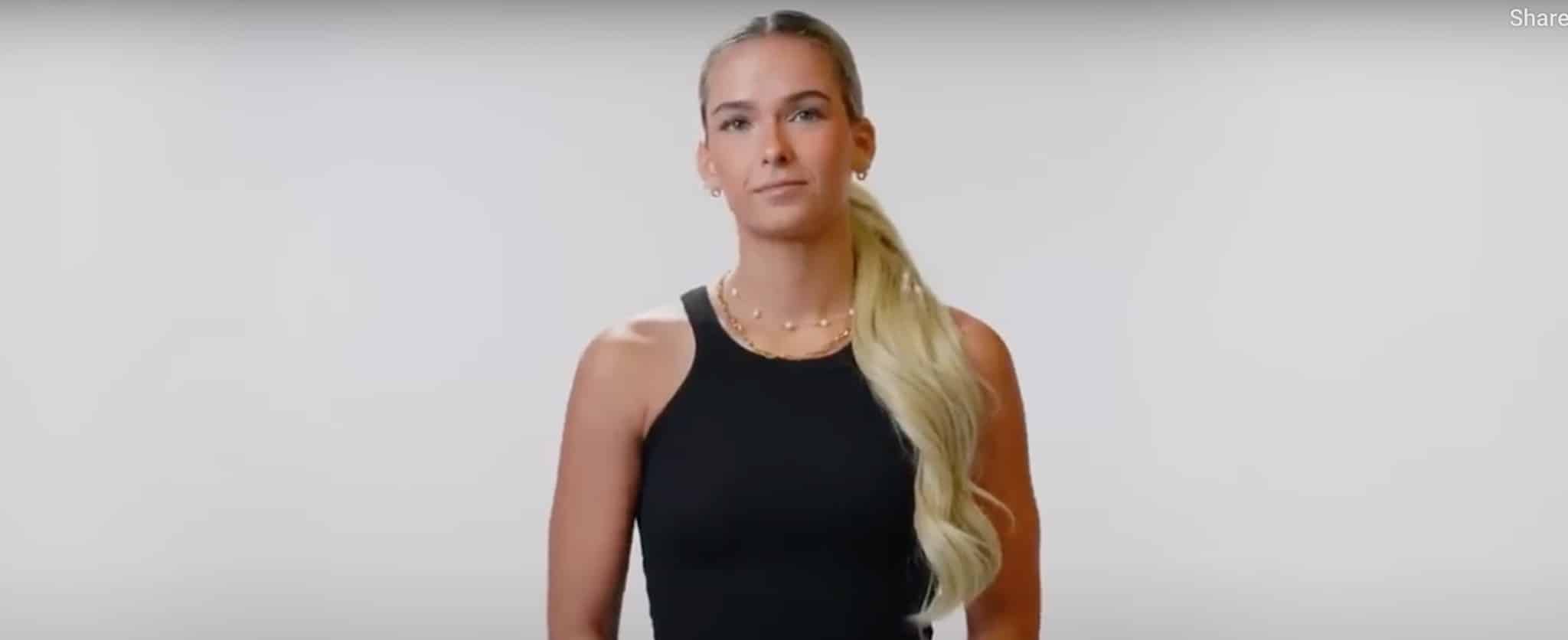There’s a promotional video for the new conservative dating app, “The Right Stuff,” with women sharing what they’re looking for in a man: someone who has “the alpha male vibe,” “wants to have kids,” and “whose faith is important to them.”
The promotional video shows the promise but also the problem with “The Right Stuff.” Despite its tagline — users know that “traditional is attractive” — traditionally minded singles must still advertise themselves with just a photo and a few words, requiring users to make snap judgements with clicks and swipes. “The Right Stuff” attempts to set itself apart from apps such as Tinder, Hinge, or Bumble, avoiding hookup culture and other pitfalls of technology-facilitated dating. But even the most conservative dating app faces a hurdle: Love takes time, and, on apps, there’s very little of it.
Staffers of former President Donald Trump created the app, and CEO John McEntee is among its users. Venture capitalist Peter Thiel financed “The Right Stuff,” which leaves pronouns off users’ profiles and, when they register, only presents two options for gender. The app also received attention for its invite-only model, as it currently has very few women. One of its fill-in-the-blank questions (“January 6 was … ”) reportedly led to users’ receiving phone calls from the FBI, reigniting skepticism directed toward an organization that already has an anti-conservative bias.
Even if “The Right Stuff” eventually attracts more women or evades intense surveillance, there just might be something paradoxical about a conservative dating app. “The Right Stuff” seeks to solve the main issues with technology-facilitated dating, such as treating people like the seemingly endless choices on streaming services or same-day Amazon deliveries. With apps and their instant gratification, there’s always “something better,” and this is why users commonly schedule multiple dates in one evening. “The Right Stuff” may improve on commodified dating with an invite-only model or the option to post dates. But an app is still an app.
Dating through an app, even if it’s a values-centered one like “The Right Stuff,” cannot beat traditional dating. In traditional dating, people meet by chance at school or work, or perhaps through a mutual friend, and there’s a longer process of courtship or getting-to-know-you. Apps worsen the current dating malaise, in which the sexual revolution of the 1960s made sex cheap and convinced women — to their dissatisfaction — that freedom meant making the same decisions as men. “The Right Stuff” doesn’t seem willing to prevent hookup culture. “No one will be purged from this platform unless they’re using it in a harmful or misleading way,” a spokesperson told the Daily Beast. When dating is commodified, the customer is always right.
Women in the D.C. area shared another concern with the Daily Beast: that the app’s users would include other conservative political staffers within their network. This fear reflects the anxiety about approaching strangers or even dating someone you know in the workplace. In the wake of #MeToo, a movement that created necessary recourse for women harmed by men in power, many are under the impression that interactions need an almost contractual arrangement. For example, some workplaces now require employees to disclose romantic relationships with other employees. This gives employers the paternalistic role of ensuring that the relationship isn’t an abuse of power.
When people sign up for a dating app, they agree to the paternalistic approach handed to them by employers, university administrators, and other powers-that-be. Because the explicit purpose of the app is to date, people give a “permission to approach” upon registering. The app becomes a digital space that, unlike in-person interactions, permits users to compliment a woman or ask for her phone number. Dating exclusively through an app thickens the ever-solidifying line between a person’s professional life and personal life, which people draw to protect themselves from accusations of impropriety or even from awkward situations.
Apps like “The Right Stuff” give users permission to not take risks, avoiding situations that could certainly be awkward but are often necessary for love. Yes, you might have to keep working with someone you broke up with, and he or she could still go to your church. But love depends on a deeper understanding of a person’s interests and worldview, and that requires spending a significant amount of time with someone. A woman cannot glean what kind of father a man will be by reading his multiple-choice response to “What are your ideal plans for children?”
What apps ultimately don’t allow for is evolving feelings. Endless choices and same-day dates require snap judgments, often based on whether one person finds another physically attractive or likes their stats. When I first met my husband seven years ago, he hardly spoke to me for the first three months that we knew each other. He assumed that I wasn’t interested. It was our weekly meetings in a student organization that led to friendship and, eventually, love. Had we not met in person, his assumptions could have prevented a second date.
If “The Right Stuff” makes it hard for people to change their minds about love, then it makes it even harder for people to change their minds about politics. The users of Bernie Singles or DemocratPeopleMeet are probably insufferable. Yet, interacting romantically and socially with different viewpoints is a better way of achieving the goal of helping people see that “traditional is attractive.”
























